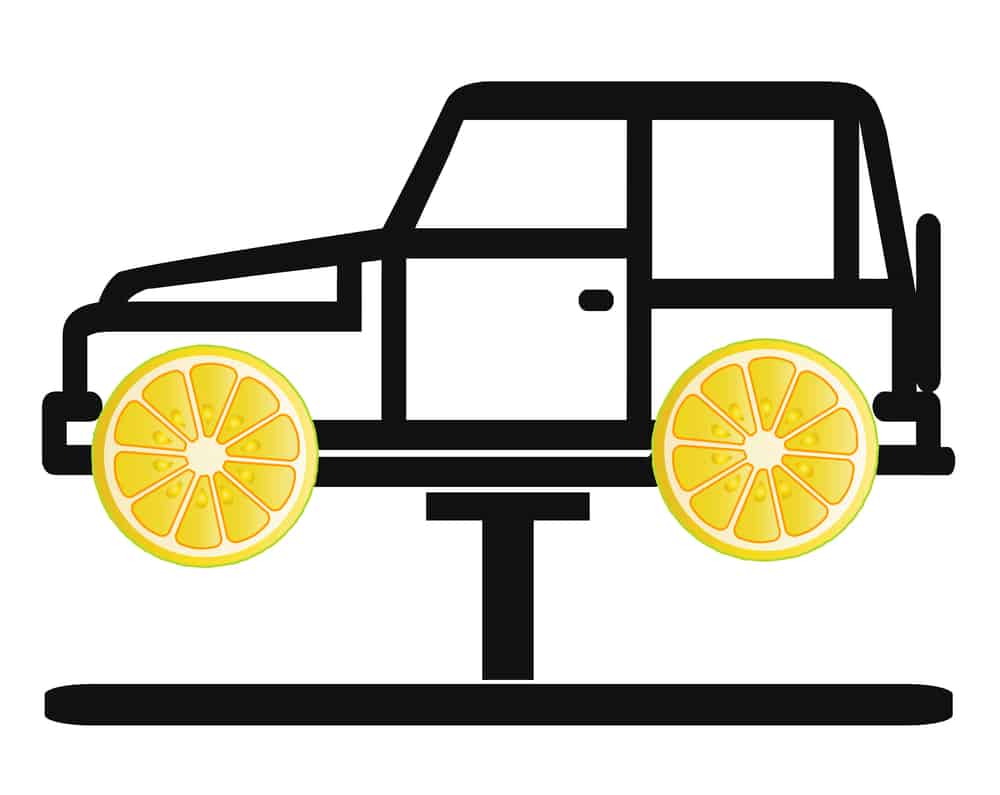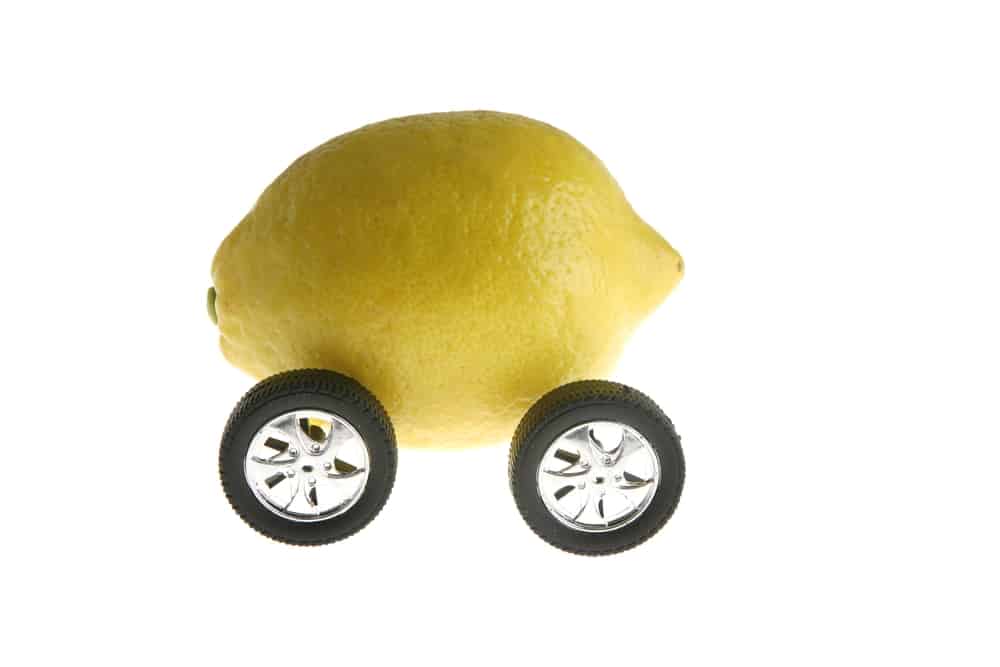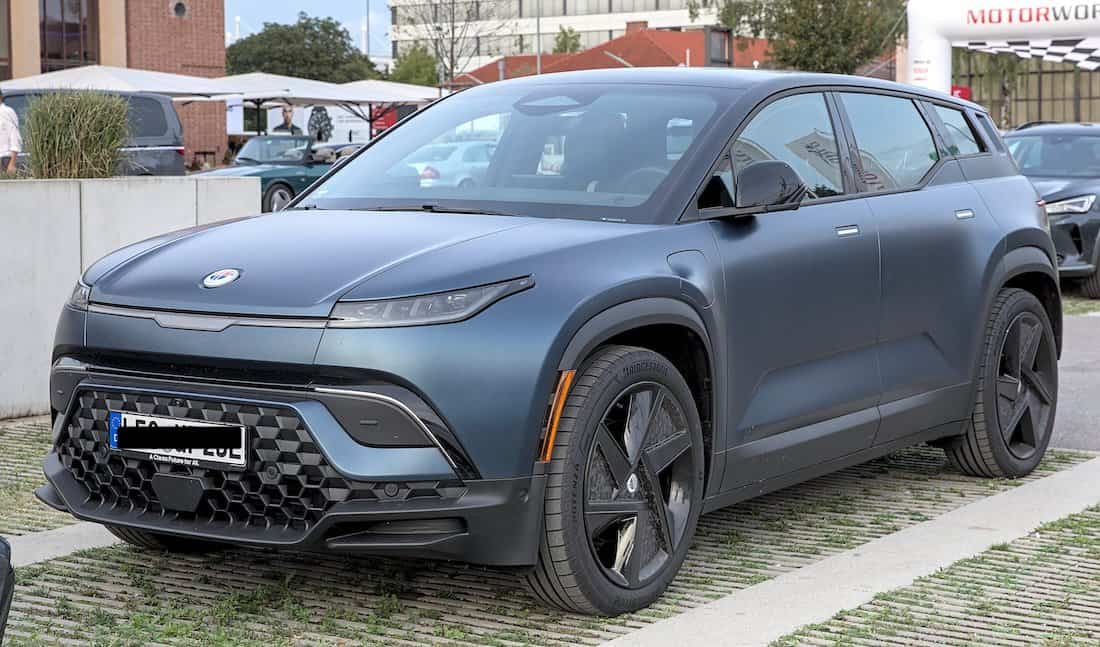It’s essential to be aware of the legal protections available to buyers when purchasing a used vehicle, including the applicability of Lemon Laws. Lemon Laws were created to protect consumers from defective vehicles and target new car purchases. They require car manufacturers and dealers to repair, replace, or refund a vehicle that fails to meet specific standards. However, the question is – do these protections extend to private sales?
Private vehicle sales can provide competitive prices and flexibility compared to buying from a dealership. But they may also present unique legal challenges such as protections offered, warranties, and documentation requirements. You must understand your rights if you unknowingly purchase a “lemon.”
In this article, we’ll delve into the applicability of Lemon Laws in private sales and discuss various factors that may influence your legal rights and recourse as a buyer.
Key Takeaways
- Lemon Laws typically apply only for new car purchases; their applicability varies by state law.
- Warranties and service contracts are essential to protect your legal rights with private sales.
- Conducting your research on title and lien considerations, dealerships’ roles, and manufacturers’ responsibilities can better protect buyers in private transactions.
Lemon Law Overview
Definition
Lemon Law refers to consumer protection laws that safeguard buyers from defects (Lemon laws generally only apply to vehicles). Consumers can pursue recourse options if they have purchased or leased faulty cars or other goods (if applicable) failing quality standards set by regulations under Lemon Law.
Purpose
Lemon Laws set out with one primary goal – To protect consumers against financial losses due to substandard product acquisitions like faulty vehicles. Regulations promote fairness during purchase transactions while simultaneously encouraging high-quality goods, adhering to quality standards, offering benefits by contributing towards responsible customer outreach, and promoting business growth through consumer satisfaction once businesses build trust, credibility, and transparency during their operations. Lemon laws safeguard consumer rights and promote trust between buyers and sellers.
Applicability of Lemon Law in Private Sales
When it comes to the applicability of lemon law in private sales, it’s essential to understand how these laws function and the key differences between purchasing a car from a private seller and a dealership. This section will delve into these aspects and discuss the variations in state laws.
Key Differences
First and foremost, it’s important to note that lemon laws are primarily designed to protect consumers who purchase new vehicles from licensed dealerships. However, some states extend limited protections to used vehicles and private sales. In contrast, private sellers are not bound by the same regulations and warranties that dealerships must adhere to.
In a private sale, the buyer typically has less protection (buyer beware!), as:
- Private sellers are not required to disclose any known defects in the vehicle.
- There is no implied warranty of merchantability, which means there is no guarantee that the vehicle being sold is fit for its intended purpose.
Due to these differences, it can be more challenging for buyers to assert their rights under state lemon laws when involved in private sales.
State Laws
Since state lemon laws can vary significantly, it is crucial to research the specific regulations applicable in the state where the sale occurs. Some states offer limited lemon law protections to used vehicle purchases from private sellers, while others only cover new vehicles.
Here’s a brief rundown of how a few states address private sales:
- California: Provides limited lemon law protection for private sales in certain situations, such as when the seller fails to disclose material defects known to them.
- Florida: Lemon law only applies to new vehicles but does have a Used Car Lemon Law, which covers specific situations when purchasing from a licensed dealer.
- New York: Lemon laws cover both new and used vehicles, though the protections for used cars are less comprehensive and mainly apply to sales from licensed dealerships.
While lemon laws generally provide more protection to consumers who purchase from dealerships, there are some instances where these laws can apply to private sales. It’s essential to understand the specific regulations in one’s state to determine the extent of the lemon law’s applicability in private sales and proceed with caution when buying a car from a private seller.
Warranties and Service Contracts in Private Sales
Transferability
Warranties can indeed be a lifesaver when purchasing a used car. In a private sale, the transferability of a manufacturer’s warranty relies fundamentally on the terms and conditions outlined by the car maker. Luckily for you, my dear reader, most manufacturers permit the transfer of their warranties to subsequent owners. However, it’s crucial to remember that the length and extent of coverage might vary due to the warranty’s age or mileage.
Protection for Buyers
Let’s discuss lemon laws and their role in private sales – a perfect combo for buyers seeking protection. Although lemon laws primarily apply to new vehicles, used buyers need not despair. Many states have a “used car lemon law” that protects used car buyers, albeit under specific conditions. But lemon laws for used cars do not extend to private sales in most states.
A service contract is an agreement that promises to cover specified repairs and maintenance for a fee. When buying a used vehicle, these contracts can typically be transferred from the original owner to you. But, rules and restrictions may apply when transferring service contracts, so be prepared to dive into the fine print.
To sum it up, warranties and service contracts can protect used car private sales. While the transferability of such agreements may vary, buyers can still find solace in obtaining coverage for their newly acquired treasures.
Legal Rights of the Buyer in a Private Sale
Fraud Protection
When it comes to private sales, buyers should remain vigilant against fraud. Even though the Lemon law might not directly apply, that doesn’t mean buyers are entirely unprotected. Individual buyers have legal rights that shield them from deceptive practices. For instance, if the seller tries to pull a fast one by misrepresenting the vehicle’s condition, that’s when the buyer has grounds to complain.
Safety Issues
Safety should never be compromised—especially not when you’re the one behind the wheel. The buyer has the right to be reasonably assured that the vehicle they’re purchasing is safe to drive. Sellers mustn’t withhold information about potential hazards or critical safety issues. If they do, the buyer may have a case for legal action. So, always be on your guard and thoroughly inspect a vehicle before sealing the deal.
Refunds and Compensation
Sometimes, the buyer could be entitled to money back or compensation. Although refunds are less common in private sales than for dealership purchases, legal protections remain. For example, if the seller knowingly misled the buyer about the vehicle’s condition, they may be liable. Moreover, a financial remedy might be warranted if the buyer can prove that they incurred substantial costs due to undisclosed issues.
Remember to stay on your toes, be well-informed, and watch for potential red flags. The legal rights of the buyer in a private sale may not be as robust as those in public ones, but they still exist to protect individuals from the perils of a dishonest deal. Stay confident and knowledgeable throughout the buying process—your safety, satisfaction, and wallet will surely thank you.
Exploring Legal Options and Recourses
Regarding private sales, the application of lemon laws varies by state. However, several legal options and recourses remain available for buyers who’ve found themselves with a defective vehicle. Here, we’ll delve into key courses of action: Small Claims Court and Hiring an Attorney.
Small Claims Court
Taking the case to small claims court might be a viable solution for those caught off guard by a defective vehicle in a private sale. This option favors those who feel confident representing themselves without needing an attorney. Small claims courts generally handle cases involving smaller monetary disputes and are much more streamlined regarding paperwork and procedures.
Before proceeding with this route, it’s crucial to check the maximum claim limit in the jurisdiction where the case will be filed, as this may vary. Additionally, preparation is key – gathering all relevant documentation, such as sales agreements, repair invoices, and correspondence between both parties, will bolster the plaintiff’s case.
Hiring an Attorney
Hiring an attorney is another option if the idea of representing oneself in court seems daunting or the case is too intricate to handle alone. An experienced attorney can provide expert legal advice and navigate the nuanced landscape of state laws in private sales. They can assess the feasibility of the claim and determine the best course of action, whether negotiating a settlement or proceeding to trial.
While attorney fees may be costly, this professional guidance gives plaintiffs a fighting chance against uncooperative sellers and helps uphold their rights. However, it is essential to weigh the costs of hiring an attorney against the potential recovery from the case to ensure one doesn’t end up out of pocket.
Lemon laws may not always cover private sales comprehensively, but individuals still have legal options and recourses. By exploring small claims court or hiring an attorney, buyers can stand up for their rights and seek justice for their defective purchase. Remember, every individual’s situation is unique, and the best course of action may vary – seek legal advice tailored to the specifics of each case for the best outcome.

Proving a Lemon in a Private Sale
Ah, the world of private used car sales, where dreams can come true, or nightmares can haunt buyers for years. If you find yourself in the unfortunate situation where you’ve purchased a lemon from a private seller, it might be a tad trickier to prove than if you had bought from a dealership. Fret not, though; let’s dive into what it takes to prove a lemon in a private sale.
First and foremost, it’s essential to know that lemon laws specifically cater to new cars, but used car buyers may still have some protection if they play their cards right. The key to victory lies in finding the breadcrumbs left by the pesky lemon’s trail of deceit. Keep your eyes peeled for any telltale signs of hidden defects or major mechanical issues the seller might’ve concealed.
To build a solid case, meticulous documentation is your best friend. Hang on to any statements or advertisements the seller had provided. Jot down conversations and any representations they made about the vehicle’s condition. If possible, gather information on similar problems faced by owners of the same vehicle make and model; this can help establish a pattern of defects. Additionally, enlisting the help of an expert mechanic can give you a strong leg to stand on when disputing the purchase.
Assuming that lady luck is on your side, and you’ve uncovered evidence of deception or fraud, the next crucial step is to take legal action. Before you unleash the hounds— I mean, lawyers— it’s worth attempting to resolve the issue amicably with the seller. Reach out to them, explain your concerns, and explore options like a refund or compensation. You never know; sometimes, a simple conversation can turn sour lemons into lemonade.
If all else fails, and you must take the battle to the courts, be ready to invest your time and resources. Legal remedies could include rescinding the contract, awarding monetary damages, or obliging the seller to fix the vehicle’s issues. Of course, each case will differ, so consult with an attorney to ensure you’re treading on solid ground.
In a nutshell, proving a lemon in a private sale isn’t a walk in the park. However, with diligence, detective skills, and a dash of determination, you might succeed in unmasking the sour truth and emerging victorious. All’s well that ends.

Role of Dealerships in Private Sales
In automobile sales, dealerships play a crucial role in facilitating transactions. But what about private sales? One might wonder if lemon laws apply in such cases. Let’s explore dealerships’ part in private sales and whether lemon laws can protect buyers.
Dealerships are intermediaries between manufacturers and customers, ensuring a smooth process from vehicle selection to purchase. They provide various services, including financing options, warranties, and maintenance. Additionally, dealerships ensure new vehicles meet regulations and safety standards, giving buyers peace of mind.
However, private sales fall outside the jurisdiction of dealerships. In these transactions, buyers purchase vehicles directly from private sellers rather than authorized dealers. Consequently, dealerships don’t play an active role, leaving buyers and sellers to navigate the process independently.
One might assume that this lack of oversight would exclude private sales from lemon law protection. Surprisingly, some states extend these protections to buyers in private sales, albeit with a few caveats. For instance, the vehicle must still be under the original manufacturer’s warranty, and the buyer must notify the seller of any defects within a specified time frame.
Unfortunately, not all states offer lemon law protection for private sales, leaving buyers in a precarious position. In these cases, buyers must rely on their due diligence to avoid purchasing a problematic vehicle. This includes thoroughly inspecting the vehicle, reviewing maintenance records, and conducting a vehicle history report.
So, while dealerships don’t directly impact private sales, they set consumer protection standards in automotive transactions. Buyers engaging in private sales should know their state’s lemon laws to determine if they have legal recourse should problems arise after the purchase. With proper research and caution, buyers can still confidently navigate private sales, even without the presence of a dealership.
Manufacturer’s Responsibility in Private Sales
In private sales, one might wonder how the lemon law applies and if the manufacturer has any obligations. Let’s dive into this complex matter to gain a clear understanding of the roles and responsibilities involved in private transactions.
During private sales, the responsibilities of manufacturers differ from those in standard dealership sales. Generally, lemon laws were created to protect consumers from defective new vehicles. However, in private sales, it’s crucial to remember that the scope of the law may not be as extensive.
Unlike dealership sales, where manufacturers are closely involved, private transactions are independent deals between individual buyers and sellers. Therefore, manufacturers may have less influence or control in these instances. Still, there are scenarios where the manufacturer’s responsibility may come into play. For example, the manufacturer could be held accountable if a vehicle falls within the warranty period and meets the Lemon law criteria.
Thus, it’s always essential for buyers to scrutinize the terms and conditions of the vehicle’s warranty. A solid warranty can be a lifesaver in tricky situations, providing assurance and recourse to the buyer should any unexpected defects emerge.
While manufacturers are not directly involved in private sales, their responsibilities can still arise if specific conditions, such as warranty terms, are met. As a buyer, don’t forget to diligently assess the warranty and any other relevant documentation to ensure a smooth and successful transaction.
Family and Friends as Private Sellers
Regarding lemon law and private sales, family and friends might occupy a unique space. Regardless, these transactions can still be subject to the same rules and regulations that govern more typical private sales. Let’s dive in and explore how lemon laws affect transactions between these close-knit individuals.
Purchasing a used car from a family member or friend may seem like a safe bet – trust is built up in these relationships. However, it’s important to note that buying from a loved one doesn’t negate the need for due diligence or the possibility of experiencing a lemon law situation. Such sales might be even more delicate due to existing relationships.
Here’s the tricky part: lemon laws vary from state to state, meaning the protection offered to consumers involved in private sales with family members or friends will differ depending on the jurisdiction. In some states, lemon law protections might not cover private transactions. On the other hand, other states provide limited coverage, ensuring that consumers are not left completely without recourse in cases where a family member or friend unknowingly sells them a defective vehicle.
A few key points to keep in mind when purchasing a vehicle from a family member or friend include:
- Do your homework, regardless of the level of trust within the relationship
- Be aware of the state-specific regulations that govern private sales and lemon laws
- If an issue does arise, try to resolve it amicably while remembering your rights as a consumer
Lemon laws can still apply to private sales involving family members and friends. Navigating these transactions can be trickier than a typical private sale, so it’s essential to be well-versed in the law, tread carefully, and approach the situation with trust and prudence.
Used Car Rules and State-Specific Laws
The Used Car Rule, enforced by the Federal Trade Commission (FTC), plays a significant role in used cars. This rule mandates that car dealers provide buyers with essential information via a window sticker called the Buyers Guide. Although it’s a helpful resource, you may be surprised that the Used Car Rule doesn’t apply to private sales.
Now, what about state-specific laws? Each state has its unique set of regulations concerning used motor vehicles. For example, California has the California Lemon Law, which protects buyers of defective vehicles but doesn’t extend its coverage to private sales. Therefore, Californians should be cautious when purchasing used cars from private sellers.
On the other hand, Minnesota, Michigan, New York, Ohio, Illinois, Massachusetts, Utah, and Washington have a state-specific lemon law for used cars. These laws vary in coverage and eligibility, so it’s important to familiarize yourself with the rules in your state. Don’t assume you’re automatically covered because you live in one of these states.
Despite the disparities, most states require private sellers to disclose certain information to buyers, such as the vehicle’s condition, past accidents, and any liens on the title. Failing to do so may result in legal consequences for the seller. So, while the Used Car Rule may not apply to private sales, other state-specific laws help buyers avoid purchasing idling lemons.
While the Used Car Rule sets a standard for dealer sales, it doesn’t cover private transactions. On the other hand, state-specific laws offer protection by requiring private sellers to disclose crucial information. Ensure that you’re well-informed and properly prepared before making a purchase, as each state has its own set of rules that you’ll need to navigate.
Title and Lien Considerations in Private Sales
When it comes to private sales of vehicles, there are essential aspects to consider, such as title and lien considerations. Unlike purchasing from a dealership, private sales may present unique legal challenges and require additional research to ensure a seamless transaction.
First and foremost, title considerations play a crucial role in any vehicle purchase. In private sales, both parties must ensure the title is clear and free of any previous ownership claims. Reviewing the title carefully can help avoid potential legal disputes down the road. It’s important to note that the title transfer procedure varies by state, so buyers and sellers should familiarize themselves with their respective local laws.
Another critical aspect to address is the possible existence of a lien on the vehicle. A lien indicates that the current owner may owe money to a creditor, such as a bank or finance company, which can complicate the transaction. Buyers must be cautious and confirm no outstanding liens before finalizing the purchase. If there is an existing lien, it’s vital to settle it and acquire a lien release from the creditor to protect their legal rights.
When it comes to warranties, private sales differ significantly from dealership transactions. Typically, private sellers don’t provide any warranties, meaning that the vehicles are sold “as is.” However, some states have specific lemon laws granting buyers certain legal rights if a defective car is purchased. Nevertheless, it’s essential to recognize that lemon laws primarily target new vehicles or those sold by dealerships; they might offer limited protection for private sales. Therefore, due diligence is necessary, including researching the car’s history, conducting a thorough inspection, and obtaining a third-party evaluation.
Private sales demand a careful examination of title and lien considerations as they directly impact the legal rights of both parties. To navigate the complexities of private vehicle transactions, it’s crucial to be aware of these legal differences and take all necessary precautions. By remaining vigilant and informed, buyers and sellers can ensure a smooth and successful conclusion to their private sale.
Summary
Ultimately, Lemon Law’s applicability to private sales remains ambiguous, and the rules can vary depending on the state where the transaction took place. While it’s clear that Lemon Laws were designed to protect consumers from defective vehicles sold by dealerships, the situation isn’t as clear-cut when it comes to private sales.
In some cases, buyers of used vehicles may find themselves with limited options for recourse. In contrast, others may be fortunate enough to reside in a state that offers protection for private sales.
Nonetheless, potential buyers must do their due diligence and research the laws specific to their location before diving into a private sale. This way, they can forge ahead confidently, knowing their rights and being prepared to handle any possible complications.
Remember, purchasing a vehicle is no small investment, so it’s vital for consumers to take their time, ask questions, and gather ample knowledge before making a decision. An informed buyer is more empowered and capable of navigating the complexities and nuances of private sales with ease and assurance.
While Lemon Laws are undeniably valuable in protecting consumers from unscrupulous dealerships, private sales is a bit murky. Knowledge is power, so buyers and sellers alike should familiarize themselves with the laws in their area to ensure a smooth, hassle-free transaction.
Frequently Asked Questions
Does lemon law cover private car sales?
Lemon laws typically protect consumers who buy new vehicles, but they can also apply to private sales—in certain circumstances. While the specific laws and consumer rights vary from state to state, some states offer lemon law protection for private sales. So, checking your state’s regulations is essential to understand the details and requirements.
What are the requirements for lemon law protection in private sales?
Several requirements usually need to be met in states that provide lemon law protection for private car sales. Generally, the vehicle must have a substantial defect not caused by the buyer, which must occur within a specific time or mileage after the purchase. Additionally, sellers might be required to disclose known defects when selling a vehicle. Researching your state’s guidelines is crucial to know the specific requirements.
Are there any exceptions to lemon law in private transactions?
Yes, there might be exceptions to lemon law coverage in private vehicle sales. For instance, some states limit the protection to new or certain used cars, while others might exclude vehicles sold “as-is” or by private individuals. Always check your state’s lemon law provisions to ensure you fully understand the limitations and coverage.
How to resolve lemon law disputes for private vehicle sales?
Resolving lemon law disputes for private car sales can be challenging, as laws vary. Gathering ample documentation, including repair records and communications with the seller, is wise if you believe you’ve purchased a lemon. Also, consult a knowledgeable attorney specializing in lemon law cases to help you navigate the legal proceedings and determine the best course of action.
What documentation is needed for lemon law claims in private sales?
When making a lemon law claim for a private vehicle sale, be prepared to present all relevant documentation, such as the initial sales contract, receipts, repair invoices, and any communication between you and the seller. The more thorough your records are, the stronger your case will be.
Does the duration of ownership affect lemon law applicability in private sales?
Yes, the time you’ve owned the vehicle may impact your eligibility for lemon law protection in private car sales. Specific time frames depend on the state—typically ranging from a few months to a few years. Remember that the sooner you address the issue, the better your chances are of resolving the matter efficiently. Always consult your state’s lemon law statutes to know the specific deadlines for your situation.



